5. Life of Brian
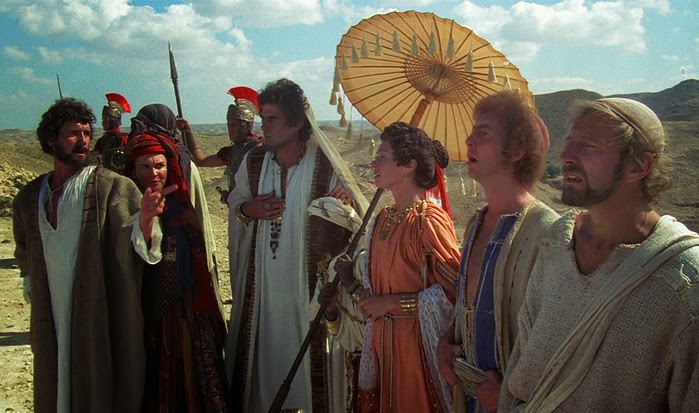
It’s a film so blasphemous it was banned in several countries. Life of Brian, along with being Monty Python’s most controversial film, is arguably their best film and unarguably their best religious lampooning.
Life of Brian follows Brian Cohen, an unimpressive fellow who is born in Bethlehem on the same day as Jesus. The wise men are the first to mistake his identity, visiting Brian’s manger before finding Jesus, and this misunderstanding plagues Brian throughout his life. He feuds with Pontius Pilot, attracts disciples, and becomes a reluctant Messiah all through no fault of his own, just unlucky circumstances.
The unluckiest of these circumstances is, you guessed it, his crucifixion, which signals the film’s end and is punctuated by the synchronized singing, between Brian and the other cross-bearers, of “Always Look on the Bright Side of Life.” It’s an absurd end to a ridiculous series of events that should look strange regardless of who’s the subject.
The mistaking of Brian for Jesus shows just how easy it is to be duped into religion by mistaking coincidence for miracles. Thanks to Monty Python’s sociocomedic insight, Life of Brian is some of the best satire Christianity has ever inspired.
4. The Master
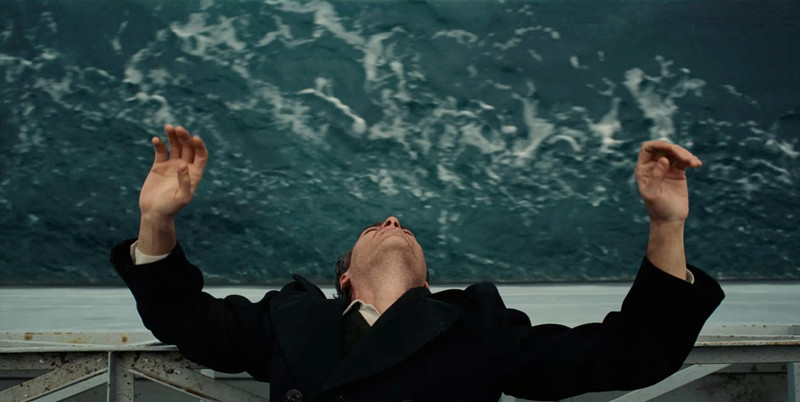
Paul Thomas Anderson’s The Master is one of the finest cautionary tales on religious brainwashing.
Inspired by L. Ron Hubbard and the formation of Scientology, The Master pairs Philip Seymour Hoffman as Lancaster Dodd, the leader of a newly conceived belief system, with Joaquin Phoenix as Freddie Quell, his damaged and unpredictable follower. Their strange relationship is tracked from birth to death as Dodd draws wayward Freddie to “The Cause” through intense psychoanalysis that turns his most hidden and painful feelings into tools for Dodd’s manipulation.
Freddie confuses the emotional trickery with power, so he joins “The Cause” and becomes Dodd’s number one apostle. Through further manipulation and promises of absolute happiness, Freddie is groomed into a submissive version of his former self.
But Freddie isn’t like the rest of Dodd’s adherents. His varied and tumultuous past has made him more of an individual than “The Cause” is used to handling, and this independence threatens the other members but makes Dodd all the more obsessed with his conversion. After enough prodding, Freddie finally sees through Dodd’s manipulation and false-divinity. He confronts Dodd, Dodd pleads for his continued service, and Freddie refuses.
“The Master’s” last words to Freddie are: “If you figure a way to live without serving a master, any master, then let the rest of us know, will you? For you’d be the first person in the history of the world.” The film ends with Freddie, by all appearances contented, having sex with a girl and mocking Dodd’s psychoanalytic techniques by playfully trying the same on her.
The Master demonstrates the predatory nature of religion and the often compromised mental states of its most devoted disciples.
3. Crimes and Misdemeanors
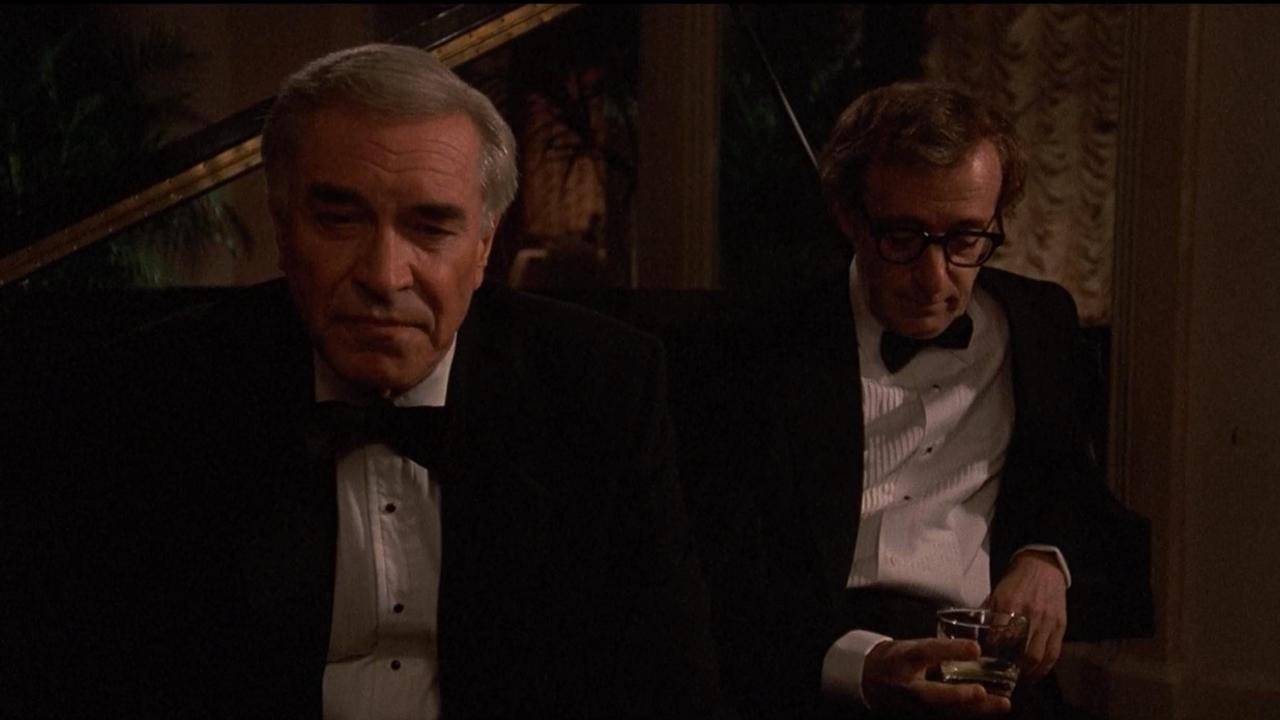
The Moral Question is a seemingly unanswerable issue that confounds both atheists and believers alike. Atheists have trouble because without a god there is no objective morality, hence all morality is relative and, without divine punishment, irrelevant; and believers, perhaps more disturbed by the religion-shattering implications of their quandary, can’t seem to reconcile a benevolent, omnipotent, and omniscient god with a cruel, careless, and random universe.
Crimes and Misdemeanors looks at the Morality issue from both perspectives and finds the atheist position more plausible than the believer’s, creating one of the unhappiest and, depending on your view, unsatisfying endings in film history.
Concerning a successful man (Martin Landau) whose mistress threatens to tell his wife and destroy his life, and an unsuccessful documentary filmmaker (Woody Allen) who attempts an affair with a successful producer, Crimes and Misdemeanors winds the stories of both men into a mutually-serving epiphany. Landau has his mistress killed to avoid the consequences, while Allen, desperate to excite his life, fails to win his own mistress, who has instead fallen for his enemy. This leaves both men sitting on a bench at the end of the film, unsatisfied with their lives, but more unsatisfied with the absence of punishment. Both got away with their transgressions, but they’re not any the happier for it.
Though harsh, this ending is not hopeless. Professor Levy, an important side character in the film, reconciles the lack of intrinsic meaning with the illusion of personal meaning by saying, “It is only we, with our capacity to love, that give meaning to the indifferent universe. And yet, most human beings seem to have the ability to keep trying, and even to find joy from simple things like their family, their work, and from the hope that future generations might understand more.”
2. Inherit the Wind
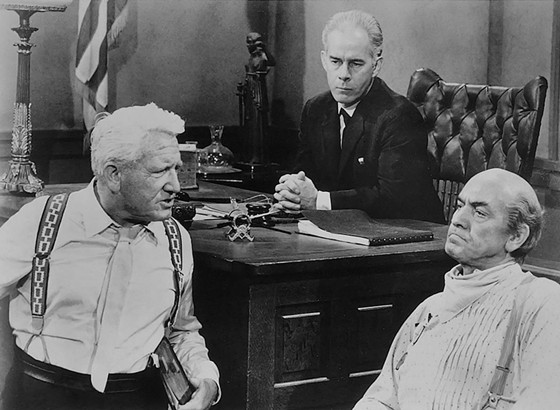
The Scopes Monkey Trial is the moniker of a case in 1925 fought between the state of Tennessee and teacher John Thomas Scopes over the teaching of evolution in high school. This trial, originally won by the state but overturned on a technicality, received much press and inspired a famous play which was adapted into the film Inherit the Wind. The trial and exposure combined for one of the greatest victories for free thought in Christian America.
With Stanley Kramer at the director’s helm, Spencer Tracy playing defense attorney Henry Drummond (inspired by real defense attorney Clarence Darrow), Gene Kelly as journalist E.K. Hornbeck (popularizer H.L. Mencken), and Dick York as the defendant Bertram Cates (John Scopes), Inherit the Wind is a fictional retelling of the case which brought intellectual diversity to the forefront of public concern.
The film explores religion, science, reason, McCarthyism, and, most prominently, the cultural guillotine that executes unpopular opinions with popular prejudices. It’s a film that values not only the truth but the freedom to be false without consequence.
Released way back in 1960, Inherit the Wind fearlessly prods sacred cows that are still grazing today.
1. The Seventh Seal
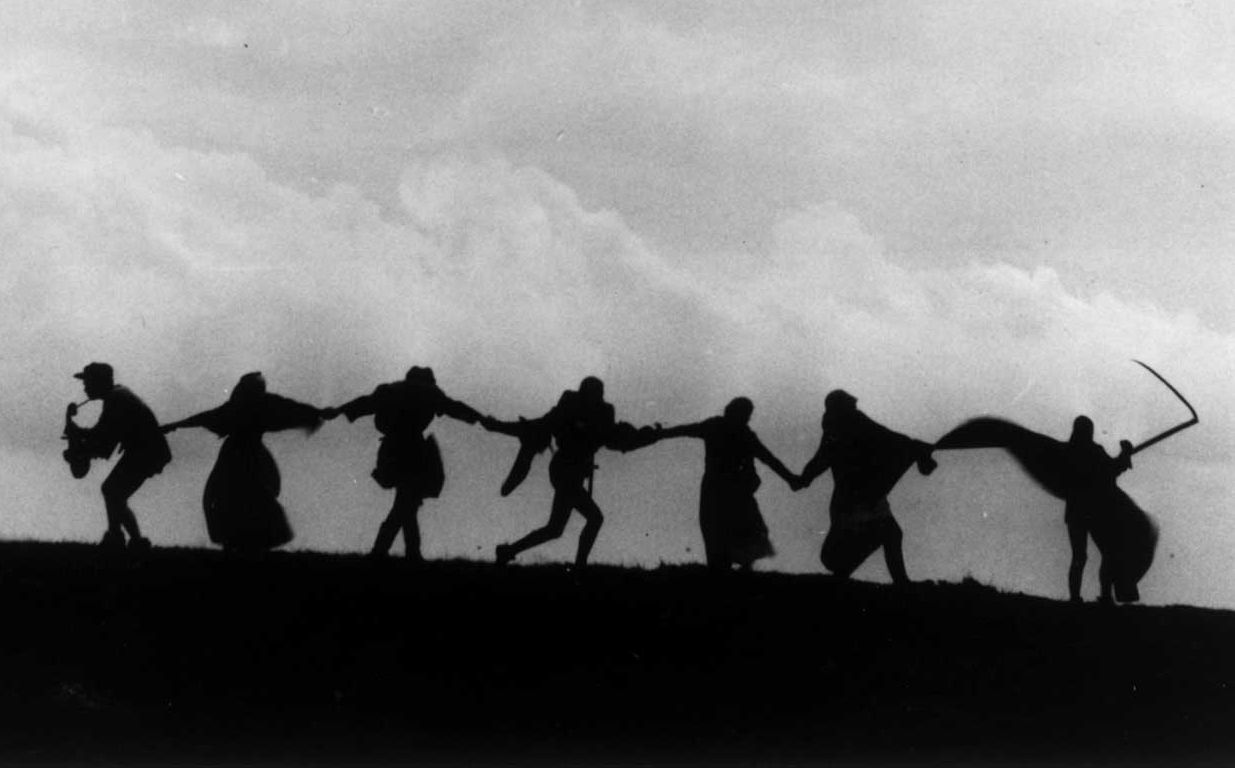
All existential works bow their heads to The Seventh Seal, possibly the greatest film on the search for meaning in a meaningless universe.
Directed by Ingmar Bergman, one of existentialism’s highest-ranking officers, the film concerns a knight wandering a disease-torn Europe during the Black Plague. Death switches from abstract to universal as its mark is branded on all people, living or dead. Then Death becomes personal, as the knight finds the personification of death playing chess on the shoreline of a sea. He challenges the figure to a game, hoping to extend his life. Death agrees, and this chess game bulwarks a narrative that takes the conflicted knight into the dark recesses of human understanding.
In-between chess scenes, the knight, Block, is shown traversing the countryside on his search for the meaning of life, and joining with different folks who are all seeking their own versions of God, as far as God means meaning. Some desire love, others desire desire, while Block continues to question death in connection with purpose.
By the end of the movie, God’s never found, desire is considered vanity, and much action is rendered meaningless, but still Block and the remaining groupmembers dance and rejoice in Death’s omnipresent shadow. Through the finality of death, they are united in a greater meaning.